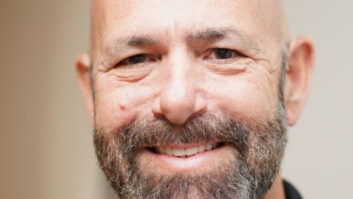Washington D.C. – The music, webcasting, and broadcasting industries assailed the Library of Congress decision imposing royalty rates on non-subscription, non-interactive streaming-music services.
The music industry said the rates weren’t high enough, and broadcasters and webcasters said they’re too high. They’re so high, in fact, that the National Association of Broadcasters (NAB) contended that AM and FM stations will probably stop retransmitting their programs over the Internet. And the webcast industry said many small web-only webcasters will simply close down rather than pay up.
If broadcasters and webcasters are right, there will be fewer non-subscription music programs for Web-connected home-audio devices to play.
The decision’s impact could also spill over into the continuing, unresolved dispute over royalty payments to be paid by subscription-based and interactive webcasters.
For web-only webcasters, the Library cut in half the royalty rate proposed by an arbitration panel to 7 cents from 14 cents per song per recipient. The Library upheld a 7-cent rate for AM and FM stations that restransmit their programs. The royalties would be paid to recording artists and record labels.
Said NAB president/CEO Edward O. Fritts: ‘The Librarian’s decision places a prohibitive financial burden on radio station streaming and will likely result in the termination of this fledgling service to listeners.’
Alex Alben, government affairs VP of music-software supplier RealNetworks, told TWICE that he found ‘some good things’ about the ruling but added, ‘The rate is fundamentally too high. There’s a real possibility we’ll see some webcasters fold.’ At least 5,000 companies, including AM and FM stations, transmit audio programming over the Internet, he said.
In a written statement, he added, ‘We do not see how the proposed rates will serve either artists or web radio. As a young industry, web radio requires a level economic playing field in order to realize its potential. While traditional radio stations do not pay any royalty to perform sound recordings, webcasters will now be subject to a significant additional ‘tax’ every time they transmit a song to an online listener.’ The webcast industry would have preferred allowing ‘webcasters to scale performance payments to the revenue they receive as a result of transmitting songs.’ The decision, Alben said, will work against the Internet’s promise of unleashing a diversity of music in the face of radio-industry consolidation that’s reducing the number of formats available over the air.
A spokesman for the Digital Media Association (DiMA) said that for many small web-only webcasters to survive, ‘the rate would have to have been cut by 70%.’
DiMA is an association of companies involved in distributing and streaming content over the Internet. Jonathan Potter, its executive director, urged Congress ‘to continue to focus on the flaws’ in the royalty-setting process to ensure that future royalties ‘are more equitable to all participants.’
The current decision applies from Oct. 1, 1998, to Dec. 31, 2002. If the industries don’t agree to a rate for the next two years, the issue goes to still another arbitration panel.
Nonetheless, a precedent has been set, said RealNetworks’s Alben. ‘This ruling will inform the next negotiations.’
For its part, the Recording Industry Association of America (RIAA) claimed that ‘artists and record labels will subsidize the webcasting businesses of multibillion companies like Yahoo, AOL, RealNetworks, and Viacom.’ The rate, the association said, ‘simply doesn’t not reflect the fair market value of the music as promised by the law. This decision will certainly reinforce the steadfast opposition of copyright owners to compulsory licensing.’
The compulsory rates apply to webcasters that don’t reach individual agreements with copyright owners.
For its part, Sound Exchange, a performance rights organization, contended that ‘recording artists and sound recording copyright owners should not be forced to subsidize the growth of webcasting as we’ve been forced to subsidize the radio industry for the past 70 years.’
For their over-air broadcasts, AM and FM stations don’t have to pay artists and record companies under current copyright law.
Sound Exchange licenses Webcasters and distributes royalty payments to recording labels and artists for the delivery of their music over satellite, cable, and noninteractive Internet transmissions.













